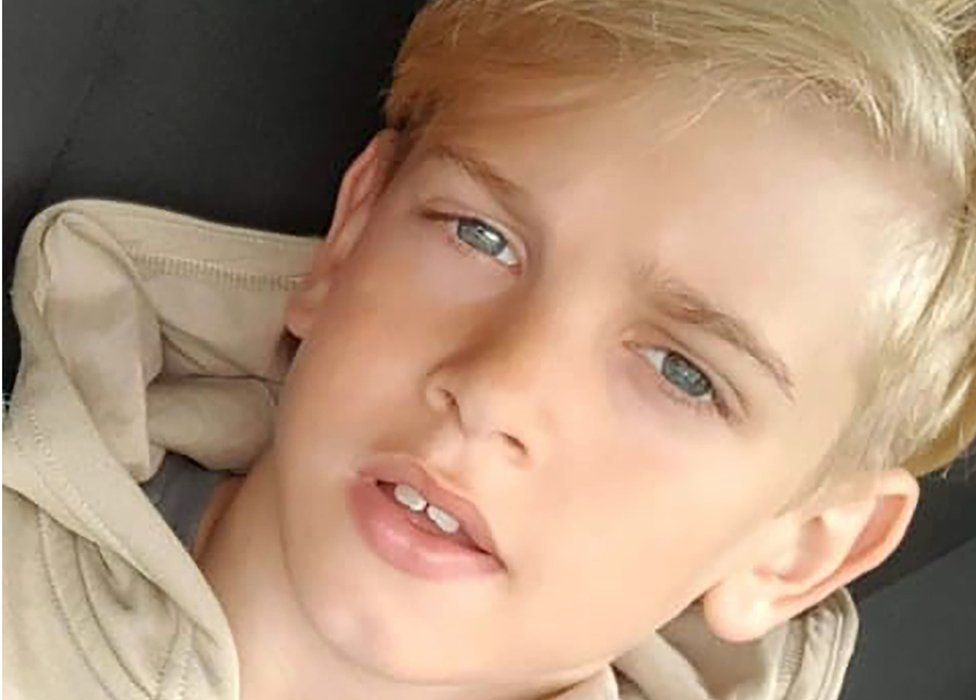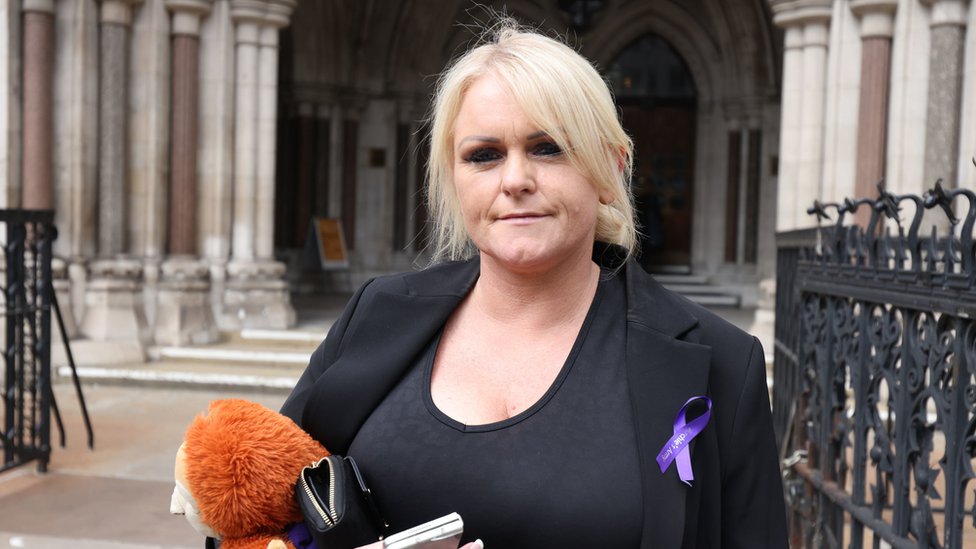Archie Battersbee: Judges reject allowing more time for UN to consider case
- Published

A last-minute Court of Appeal hearing has ruled the withdrawal of life support for Archie Battersbee should not be postponed beyond Tuesday.
The government asked judges to urgently consider a request from a UN committee to keep treating the 12-year-old.
The Court of Appeal refused to postpone the withdrawal of life-sustaining treatment beyond 12:00 on Tuesday.
Archie was found unconscious at home in Southend, Essex, on 7 April.
His care had been due to end at the Royal London Hospital in Whitechapel, at 14:00 BST on Monday.
Archie's mother believes he may have been taking part in an online challenge when he became ill. He has never regained consciousness.
President of the family division Sir Andrew McFarlane, Lady Justice King and Lord Justice Moylan ordered a short delay in withdrawing life-sustaining treatments until Tuesday for Archie's parents to consider any other applications they wish to make.
Doctors treating him believe he is brain stem dead and have consistently argued it is in his best interest for life support to end.
A previous High Court ruling heard that Archie's "every bodily function is now maintained by artificial means".
Sir Andrew said on Monday: "Every day he continues to be given life-sustaining treatment is contrary to his best interests, so a stay, even for a short time is against his best interests."
The UN convention which the request for postponement was based on was "not part of the law of the United Kingdom", the judge said.
The judges also refused to grant permission to appeal against their ruling at the Supreme Court.
However, Archie's parents, Hollie Dance and Paul Battersbee, might now ask Supreme Court justices to consider their application for permission to appeal directly.
In a statement, Ms Dance said she continued to be "shocked and traumatised" by what she feels is "the brutality of the UK courts and the hospital trust".
"Our wishes as parents continue to be trampled on and ignored," she said. "We do not understand the urgency and rush to end life-support.
"The hospital trust has at no point given us time to come to terms with what has happened.
"This is no way for a compassionate society to treat a family in our situation. We will continue to fight for Archie."
Ms Dance also appealed to other parents to ensure their children did not take part in dangerous viral challenges.
Speaking outside court, she said: "Please, please, parents, have the conversation with your children because I know there's a whole new lot of online challenges.
"I don't want any parent out there to have what we've been going through and I definitely don't want to see any more children losing their lives."
Archie's condition is so awful that judges were told everyone accepts his death is ultimately a question of timing.
This raises an ethical question in medicine - how long should one continue treatment that is artificially sustaining life?
In English law, any case before the courts involving a child must be settled on the basis of what is in the "best interests". Their best interests in legal terms are not always the same as what parents may wish.
And that simple but evidence-led test lies behind the original High Court judgement, the later Court of Appeal decision - and now today's ruling.
"Best interests" does not mean trying to sustain life at all costs. The courts have said that in rare and terrible cases like Archie Battersbee, it can also mean ending treatment where prolonging it would do no good. So the law is clear, even if the medical evidence in individual cases can be complex and disputed.
In his ruling, Sir Andrew also referred to the medical evidence before Mr Justice Hayden, who ruled on 15 July that Archie's life-sustaining treatment should be withdrawn.
He said: "In short, his system, his organs and, ultimately, his heart are in the process of closing down. The options before the court have always been stark."
Sir Andrew said these options were that treatment should be withdrawn immediately, resulting in Archie's death a short time later, or to continue treatment with medical evidence suggesting he would die in the coming weeks but, in the words of his parents, at a time "chosen by God".
Alistair Chesser, chief medical officer for Barts Health NHS Trust, said: "Our heartfelt sympathies and condolences remain with Archie's family at this difficult time.
"We are following the direction of the courts, so no changes will be made to Archie's care whilst the family appeal to the Supreme Court, though we will prepare to withdraw treatment after midday tomorrow unless directed otherwise."
Find BBC News: East of England on Facebook, Instagram and Twitter. If you have a story suggestion email [email protected]
Related Topics
- Published29 July 2022
- Published28 July 2022
- Published27 July 2022
- Published26 July 2022
- Published15 July 2022


